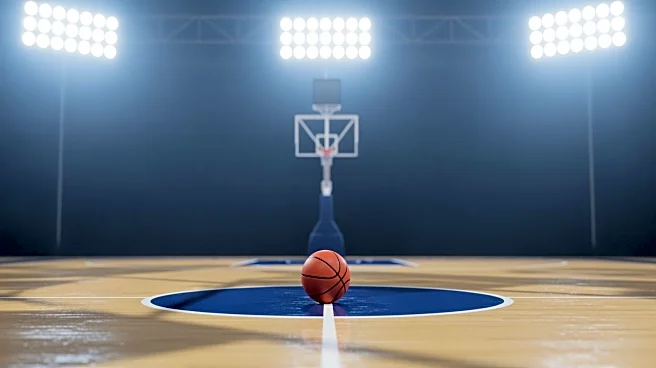What's Happening?
Ryan Dunn, a player for the Phoenix Suns, will be transitioning from a starting position to coming off the bench in the upcoming game against the Clippers. This change comes as Jalen Green returns from a hamstring
injury, prompting adjustments in the team's lineup. Despite the shift, Dunn is expected to remain a significant part of the rotation. In his recent performances, Dunn has averaged 13.3 points, 5.7 rebounds, 1.3 assists, and 2.0 steals over the last three games, indicating his continued contribution to the team even in a non-starting role.
Why It's Important?
The decision to move Ryan Dunn to the bench highlights the dynamic nature of team strategies in the NBA, particularly in response to player injuries and recoveries. Jalen Green's return is a pivotal moment for the Suns, potentially enhancing their performance with his skills back in play. Dunn's ability to adapt to a bench role while maintaining his performance levels is crucial for the team's depth and flexibility. This move could influence the Suns' overall strategy and effectiveness in upcoming games, impacting their standings and playoff prospects.
What's Next?
As the Suns adjust their lineup, the focus will be on how Dunn adapts to his new role and how Green's return affects team dynamics. The coaching staff will likely monitor Dunn's performance closely to ensure his contributions remain impactful. The team's strategy may evolve further based on the outcomes of upcoming games, potentially leading to more lineup changes. Stakeholders such as fans and analysts will be watching to see how these adjustments influence the Suns' performance in the competitive Western Conference.
Beyond the Headlines
This development underscores the importance of player versatility and team adaptability in professional sports. Dunn's transition to a bench role could serve as a case study in managing player roles and maximizing team potential amidst changing circumstances. It also highlights the significance of injury management and recovery in sports, as Green's return prompts strategic shifts that could have long-term implications for the team's success.








